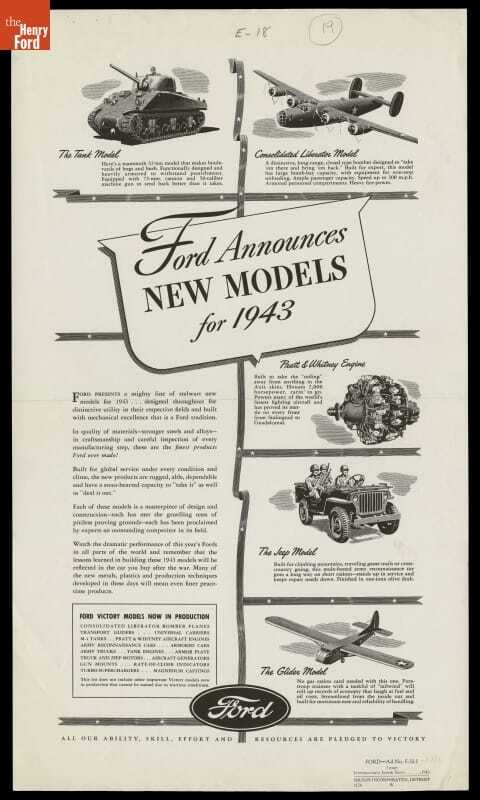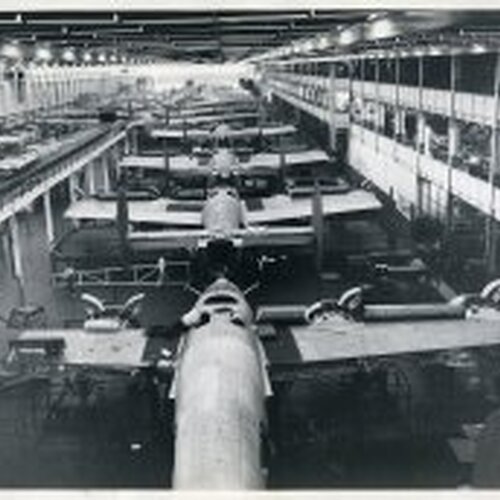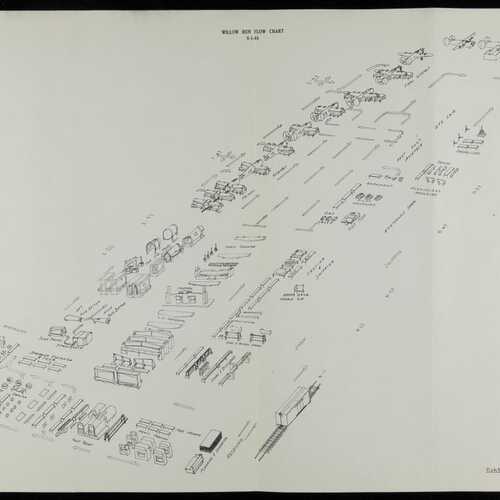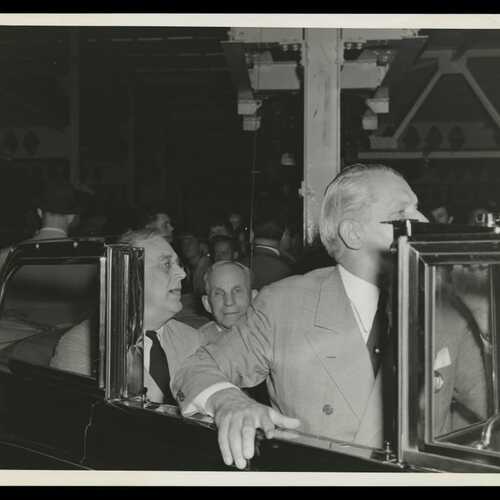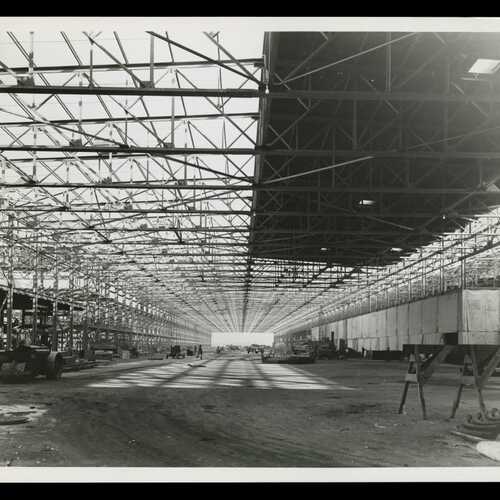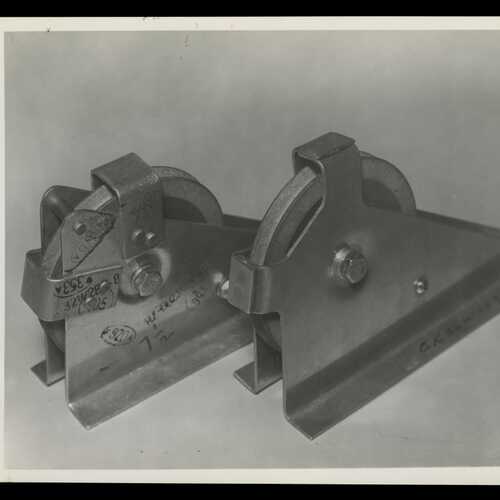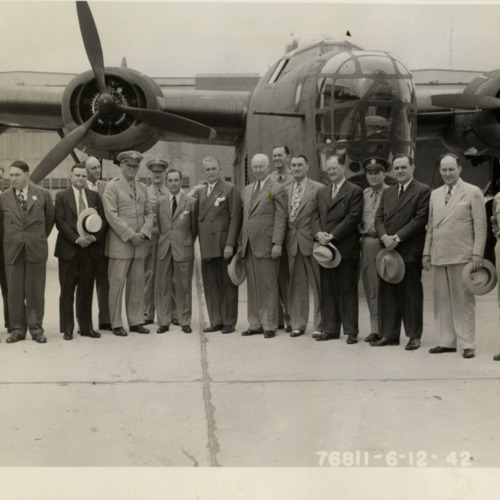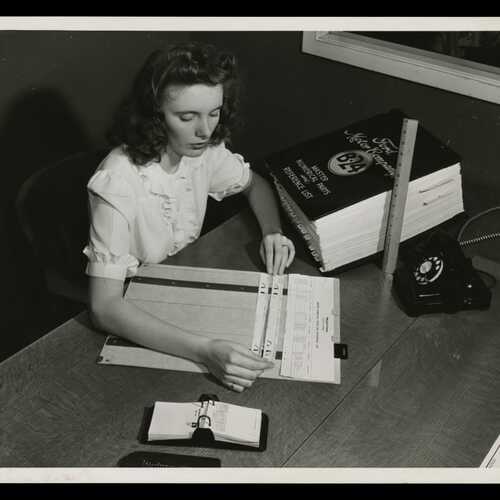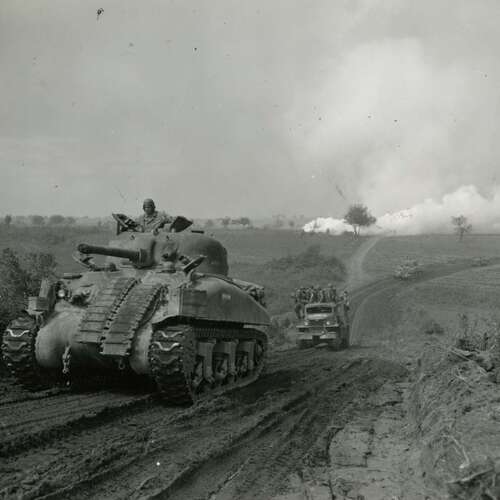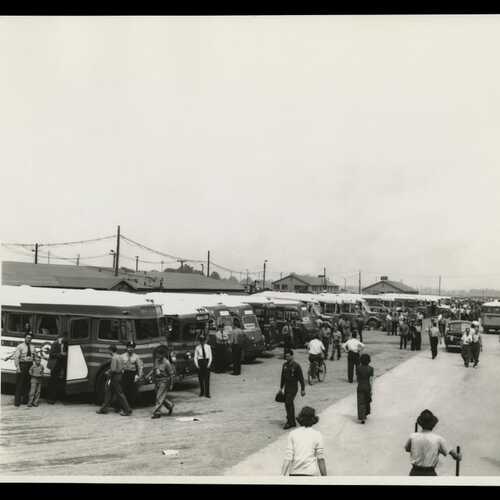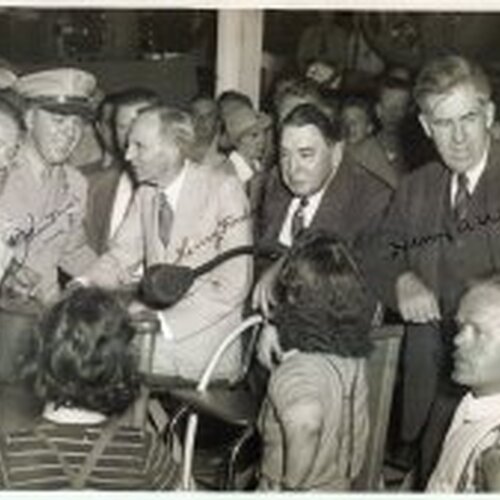Ford Motor Company Production
Introduction
During World War II, the Ford Motor Company underwent a transformative shift from automobile manufacturing to supporting the war effort. Ford's significance lay in its establishment of the Willow Run Airport near Detroit, Michigan, which became a vital production site for B-24 Liberator bombers. Leveraging their expertise in mass production techniques from the automotive industry, Ford streamlined the assembly line process, enabling the remarkable output of approximately one bomber per hour at Willow Run. This unparalleled scale of aircraft production significantly bolstered the Allied forces, showcasing Ford's industrial commitment to aiding the war by providing essential air power. The company's innovative contributions to the war effort at Willow Run remain a testament to its adaptability, efficiency, and critical role in shaping the outcome of World War II. In addition to manufacturing planes at facilities like Willow Run Airport during World War II, the Ford Motor Company also contributed significantly to the war effort by producing military tanks, Willys Jeeps, and engines. Utilizing their expertise in mass production and assembly line techniques, Ford retooled its factories to churn out M4 Sherman tanks. This diversification in production showcased Ford's support to the Allied forces in the war on multiple fronts. This exhibition mainly focuses on the B-24 Liberators that were produced at Willow Run Airport just outside of Detroit and briefly touches on the M4 Sherman Tanks.
